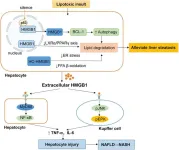A University of Massachusetts Amherst researcher will examine the role of cumulative psychosocial stress – as well as race, ethnicity and gender – among U.S. military personnel to gauge their impact on cardiovascular health and healthcare utilization.
The study is funded with a $1 million grant from the Defense Health Agency, part of the Department of Defense (DoD). The findings will help the military develop programs for health promotion and health readiness for active duty and Reserve/National Guard personnel.
“One of the priorities of the Defense Health Agency is informing health promotion efforts for service members’ readiness and well-being,” says lead investigator Daniel López-Cevallos, associate professor of community health education in the School of Public Health and Health Sciences. “The strength of our study is that we are able to look at child abuse and neglect, bias and discrimination, and military stressors associated with health outcomes. We will be able to assess both the overall stress burden, as well as identify specific stressors that can affect heart health of U.S. service members.”
López-Cevallos is collaborating with Sheila Castañeda, a research epidemiologist in the Deployment Health Department at the Naval Health Research Center and deputy principal investigator of the Millenium Cohort Study. This cohort is the largest and longest-running prospective health study in U.S. military history, with more than 260,000 service members enrolled since 2001. The study is designed to examine the effects of military service on long-term health outcomes of service members and veterans.
The researchers will analyze survey data and DoD administrative and healthcare records from more than 58,000 military personnel who enrolled in the study in 2020-2021. Those participants were surveyed about adverse childhood experiences, experiences of hazing, bullying and discrimination, combat experiences, health diagnoses and other stressful life events.
“Previous epidemiological research indicates social determinants of health, such as increased exposure to stress, may contribute to cardiovascular disease disparities among certain racial and ethnic civilian groups,” Castañeda says. “Our study will determine the role of cumulative stress on heart health among service members in hopes of determining targets for integrated prevention efforts.”
In addition to measuring the associations between various stressors and cardiovascular health, López-Cevallos and Castañeda will look at the moderating effects of protective factors – such as post-traumatic growth, social support, unit cohesion and military satisfaction – on the relationship between cumulative psychosocial stress and health outcomes.
“One of the things we’re able to do in this study is to look at the cumulative or synergistic effects of experiencing multiple, both acute and chronic, stressors,” López-Cevallos says. “There is little research that has looked at disparities by gender and among racial and ethnic groups within the military.”
The researchers will use the American Heart Association’s Life’s Essential 8, which are key measures of cardiovascular health, in their analysis. They include health behaviors, such as eating and sleeping well and not using tobacco, and health factors, such as blood pressure, cholesterol, diabetes and body mass index.
“We will look at the aggregate levels of stress of these service members and then also get more specific to tease out individual stressors, such as adverse childhood experiences or experiences with harassment and discrimination. Then we can recommend areas of focus within the military to inform programmatic and policy priorities,” López-Cevallos says.
Another goal is to effect better cardiovascular outcomes and reduce healthcare system burdens by addressing the psychosocial stressors. “The theory here is to tackle those upstream factors that would otherwise erode health outcomes and also increase utilization of more complex health services,” he adds.
END
Risk Management Strategies Provided by Forex Brokers
Forex trading offers immense opportunities but also carries significant risks. To help traders navigate the volatile currency markets, many forex brokers provide a suite of risk management strategies. These tools and services are designed to protect traders from large losses, help manage margin requirements, and maintain a balanced trading approach. This article provides an in-depth look at the risk management strategies offered by forex brokers, explaining how each tool works and why it is crucial for both novice and experienced traders.1. Understanding the Risks in Forex Trading
Before delving into broker-provided risk management strategies, it is essential to understand the inherent risks in forex trading:
Market Volatility: Currency markets are highly liquid and subject to rapid price movements influenced by economic news, geopolitical events, and market sentiment.
Leverage Risks: Forex trading typically involves high leverage, which can amplify gains but also magnify losses. Counterparty Risk: The risk that the broker or trading platform might fail to meet its obligations.
Liquidity Risk: Occurs when traders cannot exit positions at desired prices due to insufficient market liquidity. Given these risks, effective risk management becomes not only a prudent practice but a necessity for long-term trading success.
2. The Role of Forex Brokers in Risk Management
Forex brokers are not just intermediaries for executing trades; they also serve as risk management facilitators. Recognizing the complexities and volatility of the forex market, brokers provide a range of tools designed to help traders control potential losses. The following sections describe key risk management strategies offered by forex brokers.
3. Stop-Loss Orders
How Stop-Loss Orders Work A stop-loss order is an instruction given to the broker to automatically close a position when the price reaches a predetermined level. This mechanism is crucial for preventing excessive losses when the market moves against the trader’s position.
Benefits
Loss Limitation: By setting a stop-loss order, traders can cap their losses on any single trade.
Automated Protection: Allows for hands-off risk management, particularly useful in fast-moving markets where manual intervention might be too slow.
Psychological Relief: Helps mitigate the emotional impact of watching a trade go against expectations, reducing the tendency to hold on to losing positions.
Best Practices
Strategic Placement: Place stop-loss orders at logical levels based on technical analysis rather than arbitrary price points.
Regular Updates: Adjust stop-loss levels as market conditions change to ensure they remain effective.
4. Take-Profit Orders
How Take-Profit Orders Work
A take-profit order is the counterpart to a stop-loss order. It automatically closes a position when the price reaches a favorable level, locking in profits before market reversals can erode gains.
Benefits
Profit Securing: Helps secure gains in volatile markets by ensuring that profits are realized when predetermined price targets are met.
Emotion-Free Execution: Automates profit-taking, reducing the likelihood of letting emotions interfere with trading decisions.
Risk-Reward Optimization: Enables traders to define a favorable risk-reward ratio before entering a trade, promoting disciplined trading strategies.
5. Margin and Leverage Controls
Understanding Margin and Leverage Leverage allows traders to control large positions with relatively small amounts of capital, but it also increases the risk of significant losses. Brokers manage this risk by enforcing margin requirements and offering leverage controls.
Broker-Provided Strategies
Margin Calls: When the account equity falls below a certain threshold, brokers issue a margin call, requiring traders to deposit additional funds or close positions.
Automatic Position Liquidation: If the account equity continues to fall, brokers may automatically close positions to prevent the account from going into a negative balance. Customizable Leverage Options: Many brokers now allow traders to choose leverage levels that suit their risk tolerance. This flexibility enables traders to use lower leverage ratios, reducing exposure to potential losses.
Benefits
Risk Mitigation: By controlling leverage and monitoring margin levels, brokers help prevent traders from taking on positions that exceed their risk capacity.
Regulatory Compliance: Ensuring that traders adhere to leverage limits is part of a broker's responsibility to comply with regulatory requirements, protecting both the trader and the financial institution.
6. Negative Balance Protection
What is Negative Balance Protection? Negative balance protection is a policy adopted by many reputable forex brokers to ensure that traders cannot lose more money than they have deposited. In extreme market conditions, losses can sometimes exceed the trader’s initial capital; this protection prevents that scenario.
Benefits
Financial Safety Net: Ensures that traders are not held liable for losses beyond their account balance. Risk Containment: Provides peace of mind to traders by limiting their exposure, particularly in highly volatile or unpredictable market conditions. Enhanced Trust: Increases the overall credibility of the broker, making it a more attractive option for risk-averse traders.
7. Hedging Options
Hedging in Forex Trading
Hedging involves taking positions in the market that offset potential losses in another position. Some brokers offer hedging capabilities directly through their platforms or allow traders to use related instruments to reduce risk.
Broker Support for Hedging
Dual-Account Structures: Some brokers offer accounts that allow simultaneous long and short positions on the same currency pair.
Access to Multiple Instruments: By providing access to related financial instruments (e.g., options, futures), brokers enable traders to hedge their forex positions more effectively. Benefits Loss Reduction: Proper hedging can minimize potential losses during adverse market movements. Portfolio Diversification: Enhances risk management by balancing positions across various instruments. Increased Flexibility: Offers traders a broader set of strategies to manage and mitigate risks. 8. Trading Tools and Analytics Advanced Trading Platforms Modern forex brokers invest in state-of-the-art trading platforms that include advanced charting tools, technical indicators, and real-time data feeds. These platforms provide traders with the information needed to make informed decisions. Risk Management Analytics Real-Time Risk Monitoring: Many platforms offer dashboards that display real-time risk metrics, such as current margin levels, potential drawdowns, and exposure to various market factors. Scenario Analysis: Some platforms allow traders to simulate different market conditions and their potential impact on open positions, helping them plan for adverse scenarios.
Customizable Alerts: Traders can set up alerts for various risk thresholds, such as when a position reaches a critical loss level, ensuring they remain informed and proactive.
Benefits
Informed Decision-Making: Access to robust analytical tools allows traders to assess risk accurately before and during trades.
Proactive Management: Real-time alerts and scenario analysis enable traders to take action before minor issues become significant losses.
Enhanced Strategy Development: Data-driven insights help traders refine their risk management strategies over time.
9. Educational Resources and Customer Support
Importance of Education
While the tools provided by brokers are invaluable, their effectiveness often depends on how well traders understand and use them. Many brokers invest in educational resources to help traders develop sound risk management practices.
Broker-Supported Educational Resources Webinars and Tutorials: Live and recorded sessions that cover risk management techniques, market analysis, and platform navigation.
Risk Management Guides: Comprehensive manuals and articles that explain various risk management strategies and how to implement them effectively. Personalized Support: Access to expert advisors or customer service representatives who can provide guidance on using risk management tools.
Benefits
Skill Development: Continuous education helps traders improve their risk management skills over time.
Confidence Building: Knowledgeable traders are more confident in their ability to manage risk, leading to more disciplined trading.
Resource Accessibility: Easy access to expert advice and educational materials empowers traders to make better-informed decisions.
10. Regulatory Oversight and Broker Transparency
The Role of Regulation
Regulatory bodies across the globe require brokers to implement certain risk management measures to protect traders. These regulations ensure that brokers adhere to best practices and maintain transparency regarding their risk management policies.
How Regulation Supports Risk Management Mandatory Stop-Loss Policies: Some regulatory bodies require brokers to offer stop-loss features to protect traders from excessive losses.
Leverage Restrictions: Regulators often set maximum leverage limits to prevent traders from overextending their risk exposure.
Transparency Requirements: Brokers must disclose detailed information about their risk management tools, margin policies, and fees, allowing traders to make informed decisions.
Benefits
Increased Trust: Regulatory oversight reassures traders that brokers are operating with a high level of integrity.
Standardization: Consistent risk management practices across brokers provide a level playing field for all traders.
Accountability: Brokers are held accountable for their risk management practices, reducing the likelihood of malpractices that could endanger traders.
Conclusion
Risk management is a cornerstone of successful forex trading, and brokers play a crucial role in helping traders navigate the complexities of the forex market. From stop-loss and take-profit orders to margin controls, negative balance protection, and advanced analytical tools, the strategies provided by forex brokers are designed to limit losses and safeguard trader capital. Additionally, educational resources and regulatory oversight further enhance the effectiveness of these tools.
By understanding and effectively utilizing these risk management strategies, traders can better manage the inherent volatility and uncertainty of the forex market. Ultimately, a disciplined approach to risk management not only protects investments but also lays the foundation for long-term trading success. Whether you are a novice trader or an experienced professional, leveraging the risk management tools provided by your forex broker is an essential step towards achieving sustainable profitability in the dynamic world of currency trading.



